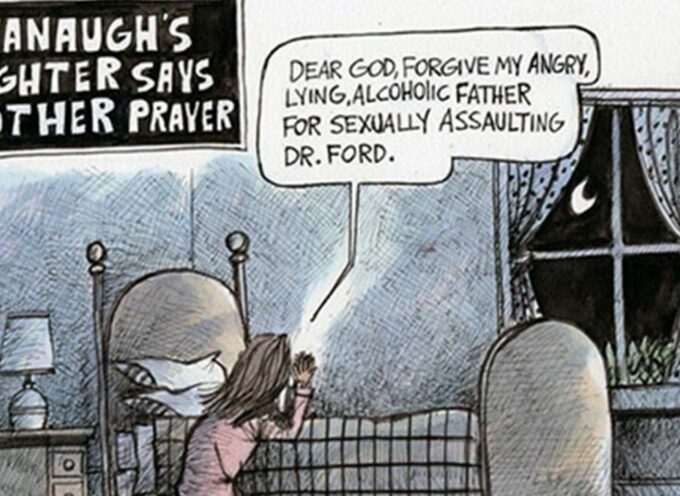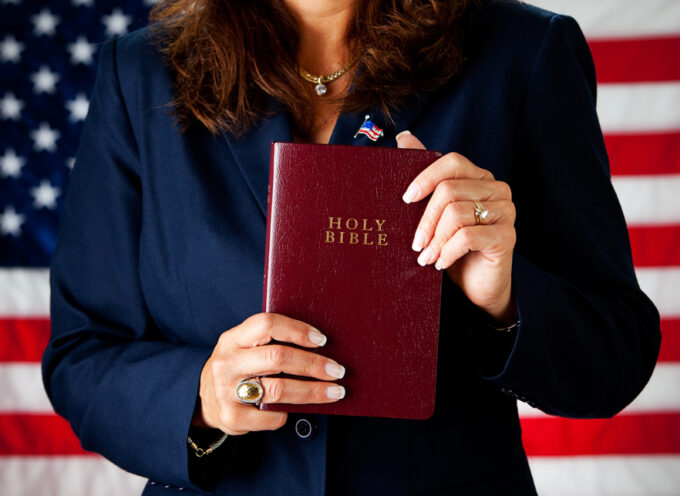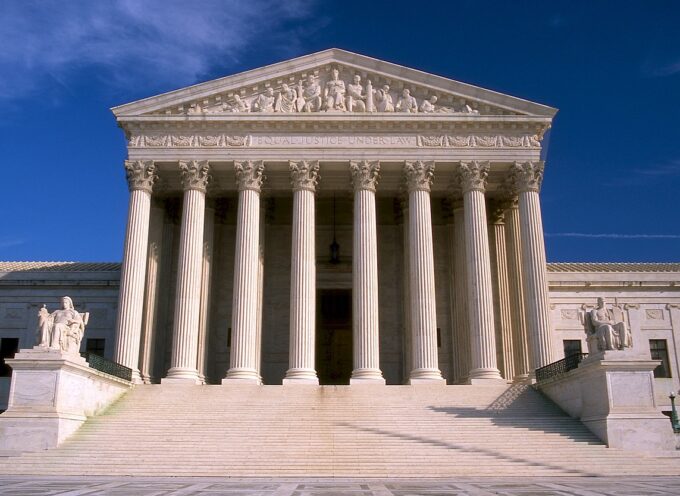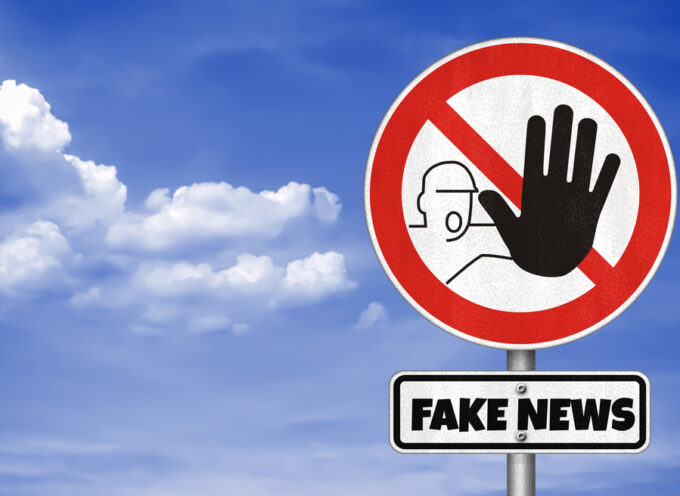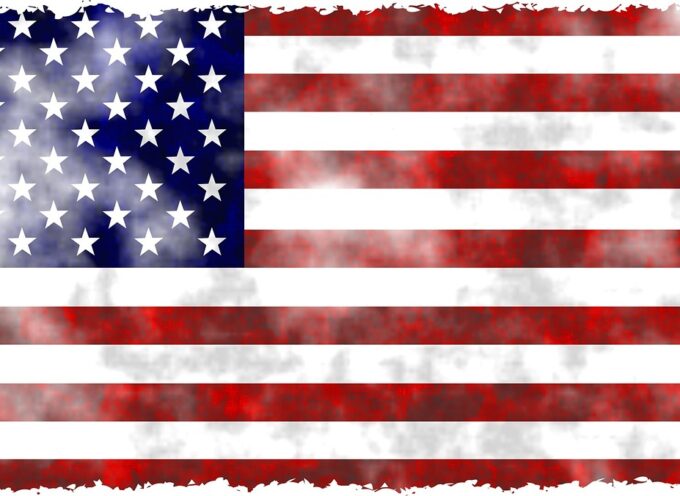Dear Christian,
Thank you for writing. I’m excited to hear that you’ve recently become a Christian. I mean, considering your name and all, that seems apropos. But seriously, I’m especially happy that you took the time to inquire about how your Christian faith should affect your political views. I’m a political junkie too, and just like you, when I became a Christian, I had to think about how my political views would be affected by my faith.
You made me laugh when you said that the 2016 election cycle felt like a “never-ending carnival of political wedgies.” I couldn’t have put it better myself. It bothered me that, from the primary debates onward, the whole thing seemed like a combination of a war, a carnival, and a Hollywood movie (and the worst aspects of all three!). Like you, I wish there had been more of a serious and reasoned debate. In a time like ours, a few eulogies for political civility would not be out of place.
[Editor’s Note: “No Public Nudity, Please” is the first in a series of posts in which I will answer a letter from my mailbag. Sometimes the post will be in response to a specific letter written to me; other times, it will be a hypothetical response to a question that I’m often asked.]
I think the most important question you asked in your letter is whether religion and politics should be mixed at all. As you mentioned, your professor at Dupont University argued that the two should never be mixed, but many of the Christians you know think the two mix quite well. You are unsure which view is appropriate. If I’m reading the subtext of your letter rightly, you don’t seem particularly impressed with either answer.
Let me start by saying that your professor at Dupont isn’t alone in his view. Many Americans agree with Thomas Haliburton when he said, “Never discuss religion or politics with those who hold opinions opposite to yours; they are subjects that heat in handling, until they burn your fingers.” Let’s face it: if we bring up religion and politics in a social situation, things can get heated pretty quickly.
But it’s not just awkwardness that keeps many Americans from wanting to mix politics and religion; they think it makes us better citizens if we lay aside our religious beliefs when discussing political matters
The most famous contemporary proponent of this view is a famous Harvard political philosopher named John Rawls. Rawls argued that Americans citizens hide behind a “veil of ignorance” when trying to come to grips with public justice.[1] Additionally he argued that public debate should be conducted without reference to the types of “comprehensive doctrines” found in world religions or ideologies such as Marxism.[2]
Many Americans are less nuanced than Rawls and go further than he does. They argue that when we engage in public debate about political matters, we should pretend that we are not aware of our own religious commitments, political ideologies, race, social class, or economic status. Ideas should battle ideas, regardless of who is making them.
This flawed view assumes that American citizens can—and should—separate their public “self” from their private “self.” It assumes that we could be as religious as we want to be when we are at home or at church, but could just as easily become non-religious when we enter into public discussion and debate. In other words, he viewed religion like clothing: we can put it on and take it off at will.
Americans who hold this view usually have good intentions, I’d imagine. They want Americans to seek good political solutions for all of their fellow citizens, rather than engaging in politics that sought good deals only for people who share our religion, race, economic level, or social status. The goal, in other words, is ethical and equitable politics. Yet despite good intentions, this proposed solution won’t work. I seem to remember a saying about where roads paved with good intentions alone lead us.
This approach won’t work for three big reasons. First, human beings are deeply and inescapably religious. We cannot not be religious. Now, I know that many people consider themselves atheist or agnostic. But that doesn’t mean that they’ve somehow become religion-free, because “religion” is quite a bit more than merely “the worship of a supernatural deity.” Most Buddhists, for example, would describe themselves as “religious,” but many of them do not worship a supernatural deity.
That is why the Bible considers religion in terms of “ultimate commitments.” All human beings commit themselves to somebody or something in an ultimate way. All human beings have somebody or something to which they give their highest trust and love. That Someone might be the God of Jesus Christ or the Allah of Muhammad. Alternatively, it might be something less obviously religious in appearance, like sex, money, power, or success. Regardless, that somebody or something sits on the throne of their heart, commanding their loyalties, shaping their lives, and offering some sort of respite from life’s pains and evils. The center cannot remain empty. It’s been said that nature abhors a vacuum. The heart does, too.
This brings us to our second point: precisely because religion involves our ultimate commitments, we cannot separate our public self from our private self. If religion were merely the mental and mystical acknowledgement of a supernatural deity, then we could easily relegate that belief to the confines of our private lives and to certain religious ceremonies. Well, somewhat easily. Supernatural beings, if they are real and not simply our subconscious wish fulfillments, tend to make public demands on our lives. But I’m getting ahead of myself. Religion is not a matter of private worship that we can keep bottled up. As the Bible defines it, religion is the central organizer of a person’s thoughts and loves.
By locating religion in the human “heart,” the Bible hints that religion affects us in the deepest aspects of who we are, and radiates outward into everything we do. If a person really and truly embraces the God of Jesus as the Creator and Lord of the universe, that embrace will have a cascade effect, pouring down and out into that person’s beliefs, feelings, values, and actions. Similarly, if a person absolutizes sex or money or power, that absolutization will cascade outward from the private recesses to the public words and actions of that person. We cannot disintegrate the person by severing the public from the private. Many Americans hear this and think I’m saying we shouldn’t keep religion private. But I’m saying that human beings can’t.
For Christians, there is a third reason this flawed approach view doesn’t work: our Christian faith functions as the deepest motivation for contributing to the common good of our nation. More than anything else it is the Bible’s teaching and Jesus’ example that motivate us to want justice and equality for our fellow citizens (even when they are members of a different religion, race, or class). It is my Christian faith that gives me the courage to criticize powerful politicians, corporations, or influencers even when there might be negative repercussions for doing so. It is biblical teaching that reminds me to remain civil during public discussion and debate even when my opponents misrepresent me or attack me. Take that part of me away and you’ve taken away the best part.
To get back to your question at the beginning of the letter, the point is that religion and politics really can’t be separated. As bright as Rawls and others are, they’re wrong on this one. Religion is not like clothing that can be taken on and off whenever we wish. It is less like a jacket or a pair of jeans, and more like our heart. It is a part of who we are and cannot be removed on a whim. So, Christian, the point is this: don’t try to get (religiously) naked in the public square.
As you mentioned in your letter, however, many Christians mix religion and politics in unhelpful ways. You are right. There are good and bad ways to mix politics. That is why we should study the Bible and the Christian tradition with a special focus on how to employ our religious convictions in ways that are politically helpful.Consider, for example, the Bible’s teaching that our words and actions should be characterized by truth and grace. If a Christian aims at truth but not grace, he will become little more than a loud-mouthed amateur lobbyist standing in the public square, sweating and yelling at passersby. (Have I described your Facebook wall for you?) If a Christian aims at grace but not at truth, he will become a sellout, sacrificing biblical convictions in order to avoid offending a society that has turned against Christian convictions. To put it differently, this combination of truth and grace should keep us from being either bullies or wimps in our political engagement.
That’s just one example of how our Christian faith can positively influence our political views and public posture. There are others. Our faith should help us maintain a critical distance from any secular political ideology, by providing us a vantage point from which to critique the negative aspects of that ideology. It should help us maintain a Christian demeanor in public debate, even when our debate partners might misrepresent us, mock us, or otherwise demean us. It will help us reframe public policy issues in ways that sometimes transcend the major party divide. I could go on. But, hey, I’ve written too much already.
One last thing: toward the end of your letter, you mentioned the disillusionment you feel right now in relation to American politics. Believe me, I can relate. From where I sit, the past several years have put on full display the dysfunctional, mephitic, and effluvial travesty that is contemporary American politics. We have experienced the increasing disintegration of both major political parties, the superficiality, inanity, and pettiness often displayed by the candidates (and interviewers) in the presidential debates, the inability of Congress to carry on a sustained or constructive debate on matters of grave national importance, the escalation of race-related crimes and unrest, a blatant disregard for the Constitution shown by the Supreme Court majority in some of its rulings, and the calloused and flippant attitudes of Planned Parenthood executive staffers when talking about taking the lives of unborn children and selling their dismembered body parts. The list could go on, ad nauseum, ad infinitum.
Yet, the times when we are the most disillusioned may turn out to be the times when it is most important for us to stay engaged. As G.K. Chesterton once wrote, “When you love a thing, its gladness is a reason for loving it, and its sadness a reason for loving it more.” Certainly these are sad times for American politics. But if we love our nation and our neighbors, this American sadness should only redouble our resolve. Our nation needs us. So let us put our Christian faith to work. Let’s draw upon its rich resources in order to help our nation.
Christian, thank you for writing. If you want to continue the conversation, let me know. The fact that you are studying political science and journalism at Dupont but interning at a conservative news outlet makes your situation unique. As you mentioned, it’s a disorienting combination. But it also means that you are well poised to leverage your Christianity to make a positive contribution to American politics.
[1] John Rawls, A Theory of Justice, rev. ed. (Cambridge, MA: Belknap Press of Harvard University, 1999); Rawls, Justice as Fairness (Cambridge, MA: Belknap Press of Harvard University, 2001).
[2] John Rawls, Political Liberalism, exp. ed. (Columbia University, 2005).
Subscribe
Never miss a post! Have all new posts delivered straight to your inbox.


